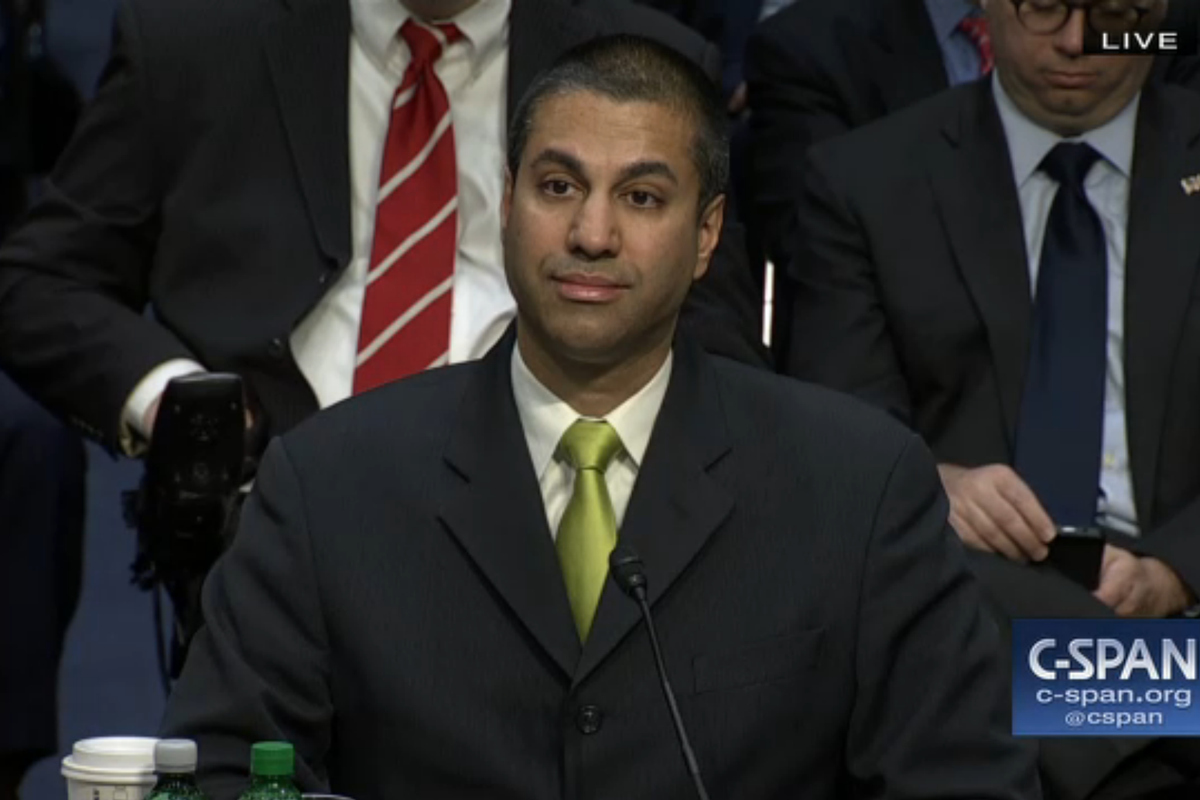Ajit Pai Comes to Senate Oversight Hearing, Defends his More Limited Vision of FCC Authority
WASHINGTON, March 10, 2017 – Federal Communications Commission Chairman Ajit Pai defended his very vision of the agency’s role, as compared with his predecessor, during the first Senate Commerce Committee oversight hearing this year. The difference in attitude between Pai and former Chairman Tom Whe

WASHINGTON, March 10, 2017 – Federal Communications Commission Chairman Ajit Pai defended his very vision of the agency’s role, as compared with his predecessor, during the first Senate Commerce Committee oversight hearing this year. The difference in attitude between Pai and former Chairman Tom Wheeler on broadband deployment highlighted the differences between the two.
“High-speed Internet access, or broadband, is critical to economic opportunity. But there are still too many parts of this country where broadband is unavailable or unaffordable,” Pai said, describing a “real and growing digital divide” between cities with ubiquitous 4G wireless service and rural areas where such service is lacking.
Pai said the FCC already had the tools to ameliorate such problems. In particular, he highlighted already-extant Universal Service Fund programs that subsidize broadband service for low-income Americans, and the push he has made since becoming FCC Chairman to roll back and revise “regulations that deter the private sector from investing in next-generation networks.”
That was a reference to his initial efforts to overturn the Open Internet order that reclassified broadband service under Title II of the Communications Act, and which asserted FCC authority to promulgate and enforce network neutrality regulations. Rolling back those rules has been a major goal of Pai’s and other Republicans for many years.
Pai also highlighted recent plans to use the second phase of the agency’s Mobility Fund to increase wireless broadband access and his plans for “Gigabit Opportunity Zones” that would use tax incentives to encourage investment in high speed networks in currently underserved areas. Pai’s proposal has been compared to the “Empowerment Zone” concept that was to spur investment in minority communities, and was championed by former Rep. Jack Kemp, R-N.Y.
Some Senators weren’t convinced by Pai’s attempts to pledge allegiance to the cause of affordable broadband and access for all.
Ranking Member Bill Nelson, D-Fla., expressed concern that Pai was planning major changes to the E-Rate program, which has historically enabled schools and libraries to connect to high-speed networks at reduced rates. Nelson called the program “essential to schools and libraries. I would expect the FCC not to make any major changes” until completing the required review of the program in 2018, he said.
Senator Brian Schatz, D-Hawaii, also questioned Pai on his desire to roll back network neutrality regulations in light of the proposed merger between AT&T and Time Warner — a merger Pai claimed the FCC had no legal authority to review under the so-called “public interest” standard – because the merger would not involve any FCC license transfers.
Schatz asked Pai if rolling back Network Neutrality regulations would mean that the FCC could no longer enforce the merger conditions placed on Comcast when the FCC approved its merger with NBC-Universal. Pai responded that the FCC could enforce merger conditions already in place. But he did not say how the Commission could enforce conditions based on regulations if the regulations were no longer operative.
Regarding the AT&T-Time Warner merger, Senator Tom Udall, D-Colo., asked Pai directly if he would respond to pressure from the Trump Administration to possibly hold up the merger because of the Trump Administration’s dislike of Time Warner subsidiary CNN’s news coverage.
That subject reportedly came up in meetings between Trump advisor and son-in-law Jared Kushner and Time Warner executives. Pai deflected the question, refusing to comment.
Despite Pai’s repeated assertions that Network Neutrality regulations were stymieing investment in broadband networks and innovation, Senator Cory Booker, D-N.J., had other ideas. He pointed out that when it came to network neutrality harming investment and innovation, “the sky is not falling.”










